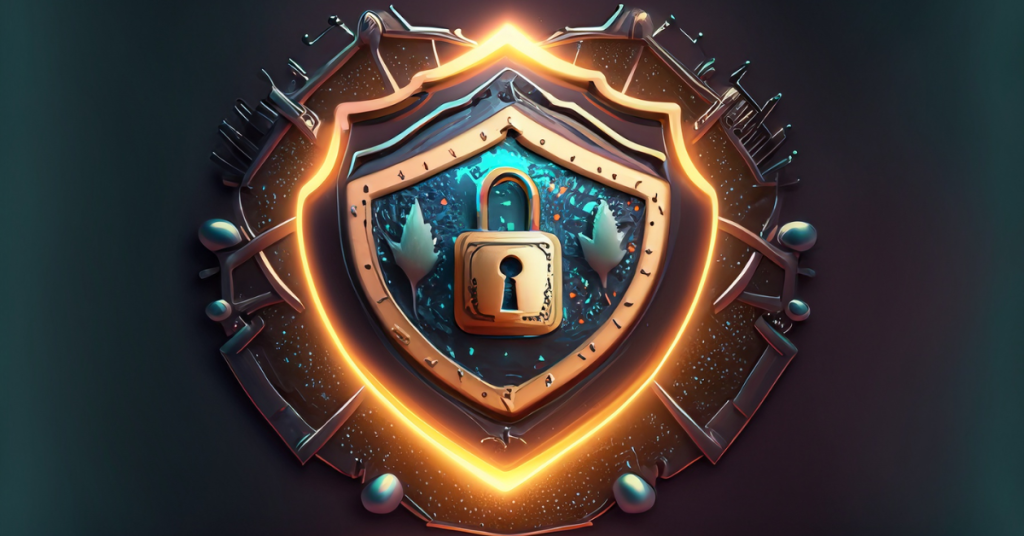The post How to protect your crypto from hackers appeared first on Coinpedia Fintech News
Protecting cryptocurrencies from hackers is like safeguarding digital money by constructing high security walls around the fortress of your digital funds. Experts have curated simple measures and swear by them to shelter the assets. In this lesson, we will unfold a varied set of methods which can be employed to protect your crypto from the pangs of theft.
1. Introduction to crypto security
Crypto security, in simple words, is similar to shielding your digital money and related transactions from online scams. There have been several ways to make sure that the currency is well protected. Crypto security is of utmost importance because of the reasons which follow:
- Unlike traditional currency, there is no one to guard the digital one. You are your own bank, caretaker and protector.
- Once your crypto is stolen, it cannot be retrieved. So, preventing theft is paramount.
- The Internet is full of thieves. They are always trying to figure out ways to find weaknesses in security.
- If a person is not careful, hackers can spot the vulnerabilities and steal the money.
Crypto security is like locking the digital purse so as to keep the funds safe in a world where burglars are constantly trying to break in.
2. How to protect your crypto accounts?
Protecting the crypto account is very important to prevent any unauthorized access and theft. Here are the ways and whims to keep you safe and tension-free:
- Create complex, strong, and unique passwords for each of the crypto accounts. Use a combination of letters, numbers, and symbols to make them harder to be cracked.
- Enable the two-factor authentication (2FA) for adding an extra layer of security as it requires a one-time code from the user’s phone while logging in.
- For long term storage, opt for hardware wallets that are not connected to the internet. These devices are highly secure against online thefts.
- Be very cautious of the phishing attacks by double-checking the URLs and emails. Never click on suspicious links or download malicious files.
- Keep the device secure with updated anti-virus softwares and system updates.
- Never keep all your money in one place. Use different wallets, like hardware wallets for long-term storage and software wallets for daily transactions.
- Keep a regular check on all your accounts and transaction history.
Staying informed about the latest scams and security procedures is the key!
3. Using strong methods of security
Here are some advanced security practices which shall be incorporated in our crypto protection regime:
- Using multi-signature wallets: These wallets are secured with multiple private keys to authorize the transactions. It is like putting several locks on your vault.
- Cold storage methods: Keeping most of the crypto in an offline storage medium, like hardware wallet or paper wallet, makes the funds safe from online attacks.
- Wallet passphrase creation: Some wallets allow the addition of passphrase to the private key. It is like having a secret code on top of the key, making it harder for anyone to steal.
- Hardware security modules (HSMs): These are the special devices designed to secure and manage private keys.
- Private networks and VPNs for transactions: Always choose a private network for transactions to add privacy and security.
- Adopting regular audits: Keep reviewing the accounts and history so that no unauthorized activity takes place.
4. Recognizing and avoiding scams
Here are some tips to identify and steer clear of crypto scams:
- Be very skeptical of the offers that promise overrated returns without any risk. They are undoubtedly “too good to be true.”
- Keep an eye for legitimate projects which have a well-documented whitepaper, an active team, and a clear roadmap.
- Ensure that the project’s team members are real and have a credible background.
- Always stay aware of pump-and-dump schemes where scammers inflate the price to trick the investors and make them sell off their holdings.
- Phishing scams are viral! Double-check before clicking on any suspicious website URL or email.
- Secure the account with two-factor authentication to add an extra layer of security.
- Stay informed about ongoing crypto scams and methods to prevent them.
5. Securing the transactions
- Use secure wallets which are reputable and offer strong security features.
- Hardware wallets, like Ledger, is one of the most secure options for long-term storage.
- Double-check the addresses before sending funds to them as crypto transactions are irreversible.
- Enable two-factor authentication (2FA) on the wallet and exchange accounts.
- Ensure that the wallet software is updated regularly.
- Avoid using public Wi-Fi when conducting crypto transactions.
- Encrypt your wallet to add an additional layer of protection to your wallet.
- Using multi-signature wallets can also be one of the most trusted ways to avoid hackers.
- Be very aware of the transaction fees associated with your transactions.
6. Emergency preparedness and recovery
It is essential to plan emergency preparedness and recovery in the world of crypto. Here is how to approach for the same:
- Creating a secure backup:
Seed phrases ensure that you are never locked out of your account or wallet. Store multi-copies of the backup in different safe locations which are usually offline.
- Using multi-signature wallets:
Consider multi-signature wallets that require multiple private keys to authorize the transactions.
- Emergency contacts:
Identify trusted individuals who can get access to your account in case of an emergency.
- Set up a recovery plan:
Document a step-by-step guide to the recovery of your account and whom to contact in case of emergency. Keep it in a secure location.
- Diversify holdings:
Avoid keeping all the money in one place. Use different locations to store the money.
- Legal and financial planning:
Consult the legal and financial professionals who understand crypto to ensure that the assets are accounted for.
- Consider crypto insurance:
Research about good crypto insurance options that cover theft or losses. Choose the policies that suit your needs.
7. Final thoughts
Hackers and their methods are advancing with the crypto world. It is important to keep a regular check on your assets and follow security practices to stay ahead of these scammers. With constant upgrades, crypto world offers a varied range of options to utilise for the safety purpose of your crypto. One just needs to stay updated with the same!
8. FAQs
When malicious agents try to access your funds by attacking your crypto wallets and accounts, the crypto hacks take place.
Yes, by following a strong security mechanism, such hacks can easily be prevented.
Phishing attacks are becoming viral with time. Hackers send links and suspicious URLs to trap the users and gain access to their accounts. It is advised not to click on any such links.

